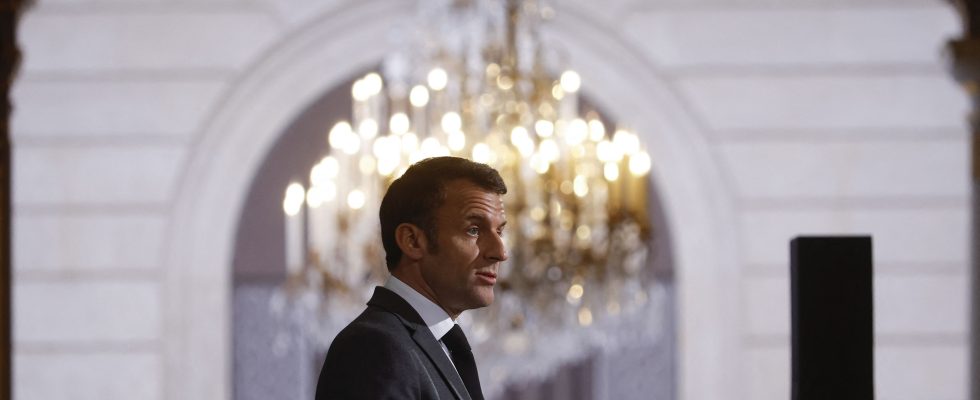Rich and poor Heads of State, financiers, climate experts… All are meeting on Thursday June 22 and Friday June 23 in Paris at the initiative of Emmanuel Macron during the “summit for a new global financial pact”. The goal ? Reimagining a global financial system that can better arm fragile states against climate change and poverty.
Whether it is one or the other, money will be at the center of discussions at this summit at the Palais Brongniart. The rich countries will be faced with their promise, supposed to be kept this year after much delay, to finance 100 billion dollars a year to help poor countries in the face of global warming.
“From now on, the battle against poverty, the decarbonization of our economy and the fight for biodiversity are very much linked together”, said Emmanuel Macron at the end of April 2023, in reference to this summit, the idea of which germinated at the time of COP27. in Sharm-el-Sheikh, Egypt, in November 2022.
Scholz, Von der Leyen, Kerry…
The parterre promises to be full in Paris, with around a hundred countries represented, including around fifty Heads of State and Government on site. Among the announced participants on the summit site include UN chief Antonio Guterres, German Chancellor Olaf Scholz, US Treasury Secretary Janet Yellen accompanied by special climate envoy John Kerry and activist Greta Thunberg, on the sidelines.
Also announced are the President of the European Commission, Ursula Von der Leyen, the President of the European Council, Charles Michel, the President of the IMF, Christine Lagarde, the Director General of the WTO, Ngozi Okonjo-Iweala, the President of Gabon, Ali Bongo, the president of Tunisia, Kaïs Saïed or even the president of Cuba, Miguel Diaz-Canel.
The new president of the World Bank, Ajay Banga, will also be present in Paris, as will the managing director of the IMF, Kristalina Georgieva. Eagerly awaited on the debt because Africa’s essential lender but reluctant to participate in a common restructuring framework with Western countries, China will be represented by its Prime Minister Li Qiang.
Dusting off the international financial architecture
The objective of the summit is to dust off the international financial architecture, born of the Bretton Woods agreements in 1944 with the creation of the International Monetary Fund and the World Bank, and to do it quickly. “If we start in the 2030s, it will cost us a lot more and the dilemmas will be dizzying,” Sarah Jane Ahmed, adviser to a group of 58 highly vulnerable countries called V20, told AFP.
The needs are immense: an Independent Expert Panel on Climate Change Financing, created under the aegis of the United Nations, estimated last year that developing countries other than China will have to spend more than 2 trillion dollars per year by 2030 for development and to respond to the climate and biodiversity crisis.
The account is far from there. France recognizes that Paris “does not have the capacity to decide”, according to an adviser to Emmanuel Macron, who anticipates that the meeting will lead to a “roadmap”.
A wide range of topics should be covered
From institutional reforms to taxation issues, from the question of restructuring the debts of poor countries to the role of the private sector, a wide range of subjects will be addressed during these two days, which indirectly extend over three with the parallel annual meeting of the Club de Paris on Wednesday 21 at the Ministry of the Economy, with questions of indebtedness in poor countries on the menu.
The Elysée intends to give “political momentum” to the idea of an international tax on carbon emissions from the shipping industry, two weeks before a crucial meeting of the International Maritime Organization (IMO).
Other subjects will occupy the exchanges, from the idea of the suspension of the payment of the debt in the event of natural disaster, very supported by the Prime Minister of Barbados Mia Mottley, to a potential international tax on financial transactions which has little chance of advancing.
The multilateral development banks, donors of vulnerable countries, from Latin America to sub-Saharan Africa, will also be called upon to lend more, a few months after the announcement of the mobilization of 50 billion dollars over ten years by the World Bank.
